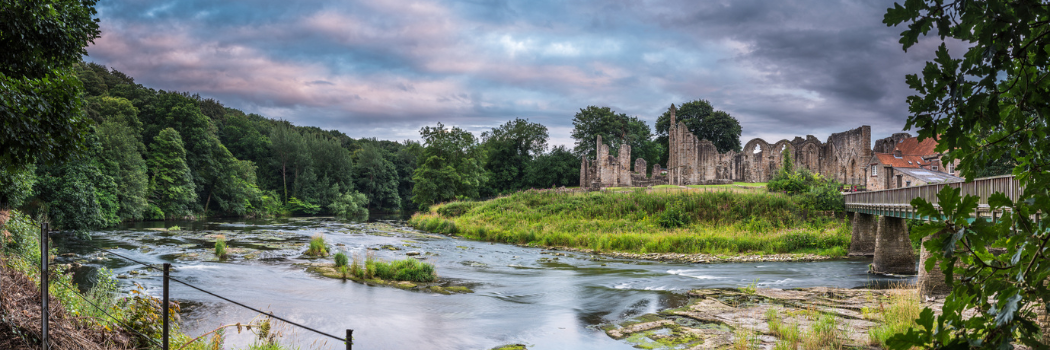
We're part of a collaboration to create three new 'Green Corridors' in the North East of England, transforming urban, suburban, and rural areas across the region.
Connecting nature, history and culture
The pioneering £3m project aims to connect city and town dwellers with nature, history, and culture, increase biodiversity and improve wellbeing.
We'll be collaborating with colleagues from Newcastle and Teesside universities, the National Trust, local authorities and community organisations on the work.
Together the project will work in partnership to deliver three North East green corridors. All green corridors are part of the National Trust's Green Corridor programme which aims to establish, by 2030, 20 large green corridors in England, Northern Ireland and Wales providing significant benefits for people and nature.
The Durham route will stretch northwards along the River Wear, starting at Crook Hall Gardens near the City Centre and connecting with over 1,000 hectares of green and blue space.
It will link to existing long-distance walks in the area such as the Camino Ingles and the Weardale Way.
The corridor will include rich natural sites such as Brasside Ponds, Low Newton Junction Nature Reserve, as well as heritage sites such as Finchale Priory and Mallygill Woods.
The other two green corridors in the region are the Tyne Derwent Way, linking attractions along the Tyne and Derwent rivers, and Tees to Topping , connecting a network of green spaces and natural assets between Middlesbrough and the Tees Estuary and the North York Moors National Park and Roseberry Topping.
Research to support regeneration
Through the partner universities, including Durham, new arts- and humanities-led research will also support the transformative regeneration of green corridors in the UK and beyond.
Working with teams drawn from local organisations and groups, our researchers will contribute to projects focusing on four themes:
- Heritage and history
- Culture and creativity
- Nature and natural heritage
- Active evaluation for learning
The aim is to help create accessible, connected, sustainable and valued places where nature and communities can thrive together.
The corridors will also nurture new kinds of environmental and cultural stewardship and shared understandings of how communities use and enjoy green spaces and heritage along the region's river valleys.
The project is one of three funded by the Arts and Humanities Research Council's Mission Awards.
Heritage 360
Our involvement in this project links directly with our Heritage 360 Strategic Research Fund.
Heritage 360 brings together research into natural and cultural heritage, looking at how heritage can impact on, and contribute to, environmental solutions, well-being and societal cohesion.
The new Green Corridors project exemplifies this approach. All of the Durham investigators for this work are also involved in Durham 360, providing synergy from the outset.






